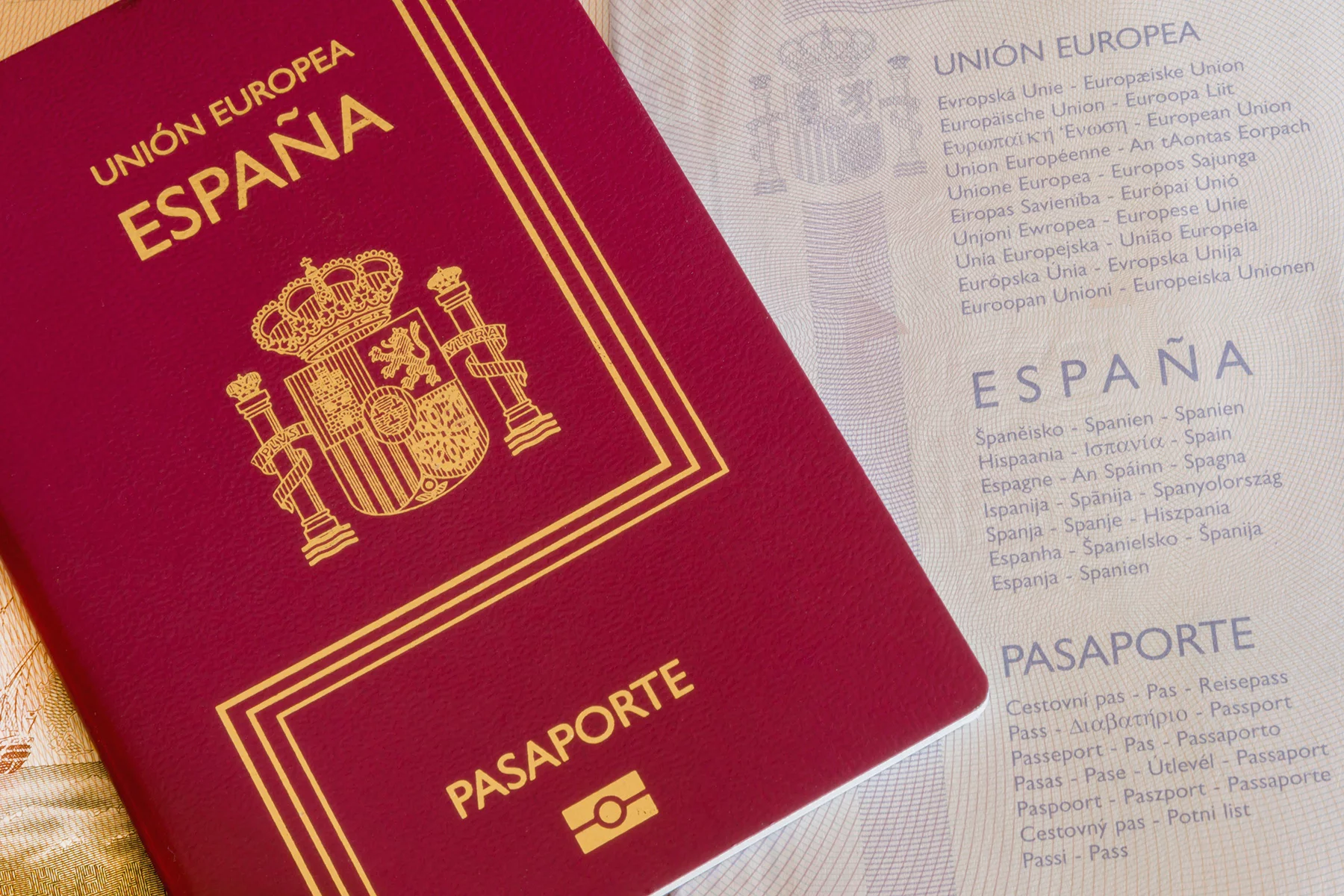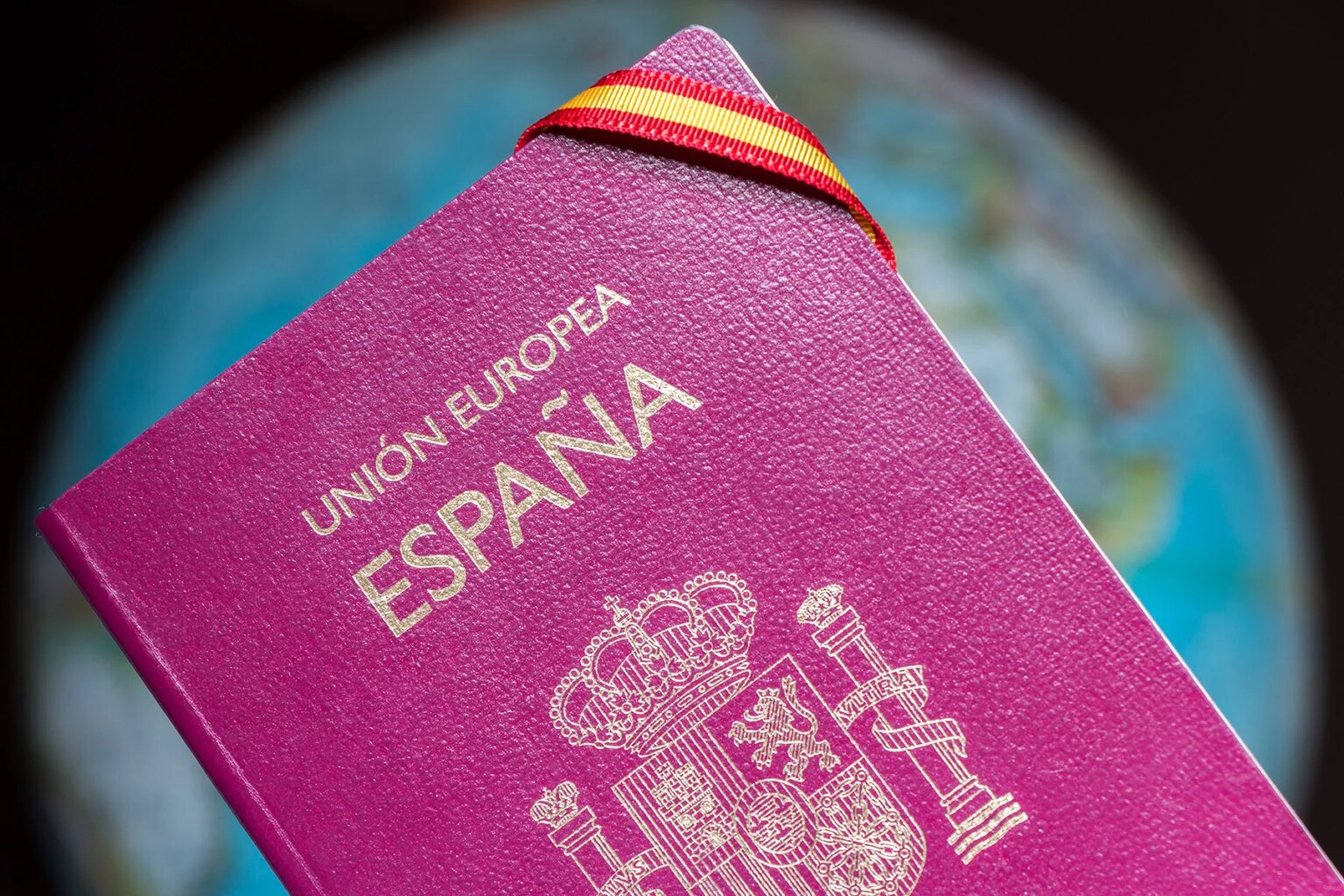Have you relocated to Spain and decided to become a citizen? Your next step might be to request a Spanish passport.
Understand the passport procedure in Spain as well as the pros and cons of having one by reading the following sections:
lingoking
Need some help getting your documents professionally translated? Then look no further than lingoking. On their easy-to-use online platform, you'll find a team of translation experts ready to help you. Whether it's passports, birth certificates, or something else, you'll find the help you need with lingoking.
Passports in Spain
The Spanish Ministry of Foreign Affairs, European Union and Cooperation (Ministerio de Asuntos Exteriores, Unión Europea y de Cooperación) oversees Spanish passport applications.
The standard biometric Spanish passport has a burgundy cover and 32 pages. It contains the passport holder’s photograph, an electronic chip containing their key personal information, signature, and unique passport number. Passports issued since 2015 have new security measures. They also enable you to link emergency contact details.

There are 4 types of Spanish passports:
- Standard passport (Pasaporte ordinario) – a biometric passport issued to citizens for ordinary travel
- Collective passport (Pasaporte colectivo) – a limited passport for under-21s with a validity of three months issued for occasions such as pilgrimages where a reciprocal agreement with the destination country is in place
- Diplomatic passport (Pasaporte diplomático) – issued to government officials and diplomats
- Official and service passports (Pasaporte oficiales y de servicio) – issued to those representing the government on official business
Benefits of getting a Spanish passport
Spain is ranked third in the world on the Arton Capital Passport Index. Spanish passport benefits include the ability to:
- Freely leave and re-enter Spain as often as you wish as long as your passport is valid.
- Travel around the world as a Spanish and EU citizen.
- Visit 189 countries visa-free (or visa on arrival).
Who can get a passport in Spain?
If you live in Spain with Spanish citizenship, you can apply for a Spanish passport. Generally, you can apply for Spanish citizenship after 10 years of legal residence.
There are certain circumstances (e.g., through marriage or a parent with Spanish nationality) when the 10-year residency requirement doesn’t apply. To get Spanish citizenship, you must meet other requirements such as being able to speak the Spanish language and having no serious criminal record.
Applying for a passport in Spain
Residents of Spain can make an appointment online to visit one of the official passport offices. You will need to bring with you:
- Valid Spain ID (e.g., DNI) for a first-time passport
- Expired passport in the case of passport renewal. If the original passport has been lost or stolen, you must obtain a police report or provide a statement that your passport is lost.
- Recent color 36 x 22 mm photograph taken of yourself in front of a plain, white background. It should be high-resolution and you should not wear a hat or dark glasses.
- Payment of the passport fee with cash or bank card
Spanish residents will be able to receive the new passport during their appointment. When you present your old passport, the issuing team will render it physically unusable to prevent you from using it again.

Requirements for minors or incapacitated individuals
- The minor or incapacitated individual and the legal guardian must attend the passport appointment
- Both parents of minors must also attend the appointment
- Original and photocopy of the parents’ passports
- In the absence of one of the parents: consent of parent signed at the Comisaría de Policía in Spain or at the Spanish Consulate General of the parent’s place of residence
- In the absence of both parents: Affidavit of Consent notarized by Notary Public in Spain or by the Spanish Consulate General of the parents’ residence
Applying for a Spanish passport abroad
You can apply for a Spanish passport while living abroad through the Spanish consulate in the country of your residence. The process is very similar to obtaining a passport while in Spain.
However, if you do not have your previous Spanish passport or a valid ID, or if these documents have been expired for more than three years, you will need a copy of your birth certificate. You will also need a document proving you are a resident of the area served by that consulate.
Dual nationality and second passports in Spain
You can have dual nationality and two passports in Spain if you’re from a Latin American country, France, Portugal, Andorra, Equatorial Guinea, the Philippines, or are of Sephardic Jewish descent. Nationals from other countries must renounce the citizenship of their home country in order to acquire Spanish citizenship and get a passport. If you want to retain your original nationality and passport, you could consider applying for permanent residence instead.
It is possible to become a Spanish citizen without getting a passport. All citizens in Spain can apply instead for an identity card known as the Documento Nacional de Identidad (DNI). This suffices as proof of nationality and enables travel around the EU, the European Economic Area (EEA), and Switzerland, as well as short-term visits to most of the rest of Europe.
Renewing or replacing a passport in Spain
Passports in Spain are generally valid for:
- Two years for children under five
- Five years for those under 30 when the passport was issued
- Ten years for those 30 and above when the passport was issued
You can renew a passport when your existing passport has less than 12 months of validity left on it. Additionally, you can request a renewal if you run out of passport pages. The process for passport renewal is the same as applying for a passport in general, except you will have to provide your old passport. As is the case for a new passport, you will first make an appointment online. If you have renewed your ID within the last two years, you won’t need to provide a new photograph of yourself.
Lost or stolen passports in Spain
If you lose your passport or someone steals it, you need to contact the authorities immediately and apply for a replacement. Spain will usually issue a duplicate Spanish passport that will be valid for the same period as your original passport.
If you are abroad and your passport is lost or stolen, you should immediately contact the nearest Spanish consulate to get a provisional passport for travel. However, if a replacement passport is lost or stolen any subsequent replacement passports may only be valid for six months.
Cost of Spanish passports
The current Spanish passport cost is €30. This is a standard fee for the first passport, renewal, or replacement for adults and minors. You should bring the exact amount of the fee in cash to your passport appointment. It is also possible to pay through the telematic service (PDF in Spanish).
Passports are free of charge if you meet certain conditions and qualify for the beneficiary of large family status.
Useful resources
- Ministerio del Interior – Spanish government information on passports
- Dirección General de la Policía – national police portal for DNI and passports








